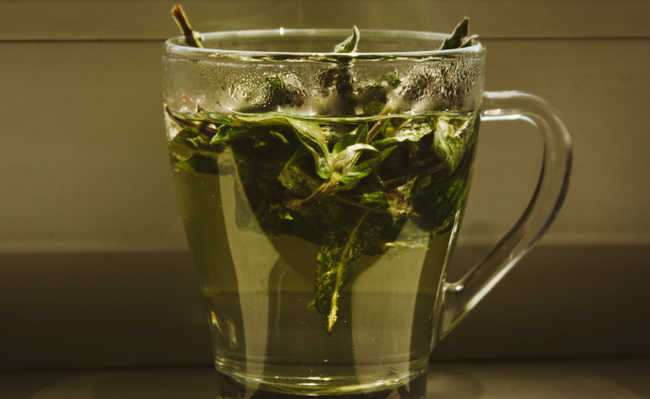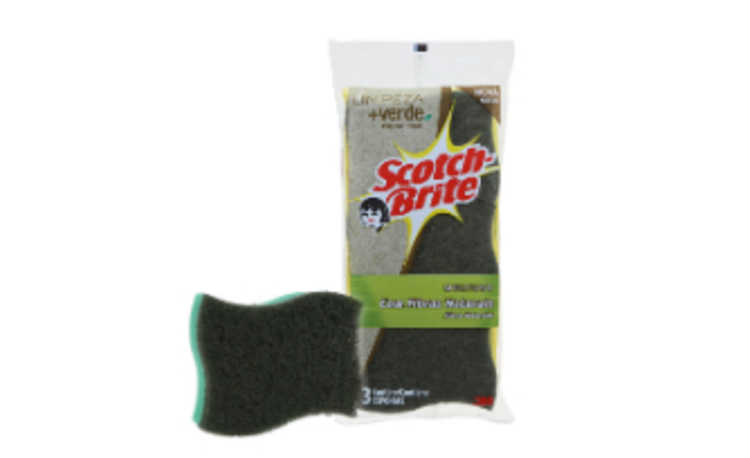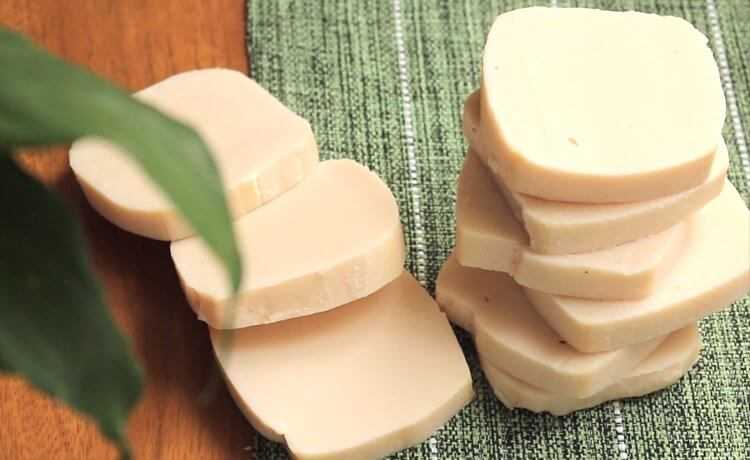Mint tea: proven benefits
Mint tea can be an ally in combating menstrual cramps, irritable bowel syndrome and colds

Anton Darius image on Unsplash
Mint tea is a beverage often used to treat menstrual cramps, colds, irritable bowel syndrome, and reflux. Some studies confirm the popular wisdom and even prove additional benefits of using mint and its tea. Understand:
about mint
Mint is used as a flavoring in candies, chewing gum and other food items. Also, many people consume peppermint as a caffeine-free refreshing tea.
According to a study published in the journal Science Direct, peppermint leaves contain several essential oils, including menthol, mint and limonene. Mint also contains powerful antioxidants, vitamins A, B6, C, E, K, folic acid and riboflavin. Whether ingested or just inhaled, it provides many benefits. According to a study by University of MarylandIn the US, spearmint has antibacterial, antifungal and anti-inflammatory powers.
According to a study by Wheeling Jesuit University, the smell and taste of mint have profound effects on cognitive functions. This includes functions such as reasoning, problem solving, concept formation, judgments, attention, and even memory.
proven benefits
1. Improves digestive disorders
According to a study by Unesp, species of the genus Mentha present ethnopharmacological indication for gastrointestinal disorders. According to the study, mint relaxes stomach muscles and improves the flow of bile, which the body uses to digest fat. Other studies still prove that peppermint can relieve digestive symptoms such as gas, bloating and indigestion.
Animal studies indicate that peppermint relaxes the digestive system and may relieve pain. It also prevents smooth muscle contraction, which can alleviate spasms in your bowel (see studies on this here: 2, 3).
A review of nine studies in 926 people with irritable bowel syndrome (IBS) treated with peppermint essential oil for at least two weeks concluded that peppermint provided significantly better symptom relief than a placebo.
In a study of 72 people with IBS, peppermint essential oil capsules reduced IBS symptoms by 40% after four weeks, compared to just 24.3% with a placebo. Furthermore, in a review of 14 clinical trials in nearly 2,000 children, peppermint reduced the frequency, length and severity of abdominal pain.
In addition, capsules containing peppermint essential oil reduced the incidence and severity of nausea and vomiting in a study of 200 people undergoing chemotherapy for cancer.
Although no studies have examined tea and digestion, it is possible that peppermint tea has similar effects.
2. Relieves asthma, sinusitis and nasal stuffiness
The scent of mint also provides benefits as it helps to "open" the airways (if you're not allergic to mint plants, so take it easy). People with asthma and allergies can benefit from using the herb. Taking peppermint inhalations or drinking peppermint tea can be very helpful in relieving symptoms. Asthmatics should add mint to their inhalations and also drink some tea. To instantly make breathing easier, add about five mint leaves to some hot water and inhale.
Mint has antibacterial, antiviral and anti-inflammatory properties. For this reason, peppermint tea can fight nasal passages clogging due to infections, common colds and allergies, according to the study.
Furthermore, research shows that menthol - one of the active compounds in peppermint - improves the perception of airflow in the nasal cavity. Therefore, the steaming mint tea can help you feel like your breathing is easier.
In addition, hot liquids such as tea have been shown to temporarily improve symptoms of sinus congestion, probably due to their vapors.
Although peppermint tea has not been studied for its effects on nasal congestion, evidence suggests that it may be helpful.
3. Helps relieve cold and flu symptoms
O menthol that exists in mint is an efficient decongestant, in addition to being a good expectorant: it helps to expel mucus and reduce coughing. Drinking mint tea is a good option to reduce sore throat and dry cough.
4. Fight bacterial infections
Although there are no studies on the antibacterial effects of peppermint tea, peppermint essential oil has been shown to effectively kill bacteria (2, 15). In one study, peppermint essential oil was found to kill and prevent the growth of common food-borne bacteria such as E. coli, Listeria and salmonella in pineapple and mango juices.
Peppermint essential oil also kills many types of harmful bacteria, including Staphylococcus and bacteria related to pneumonia (22). Studies also indicate that peppermint reduces several types of bacteria commonly found in the mouth (11, 12). And menthol also showed antibacterial activity (23).
5. Relieves menstrual cramps
As peppermint acts as a muscle relaxant, it can also relieve menstrual cramps by relaxing the uterine muscles (2, 3). Although peppermint tea has not been studied for this purpose, compounds in peppermint have been shown to improve symptoms of menstrual cramps.
In a study of 127 women with menstrual pain, peppermint extract capsules were found to be as effective as a non-steroidal anti-inflammatory drug in reducing pain intensity and duration. Therefore, it is possible that peppermint tea could have similar effects.
6. Relieves itching and skin irritations
Mint has anti-inflammatory properties and is antipruritic. So it can be used to relieve itching. When applied topically, mint has a calming and refreshing effect on irritations caused by hives, poison ivy or poison oak.
- Peppermint Essential Oil: 25 Benefits
7. Improves seasonal allergies
Peppermint contains rosmarinic acid, a plant compound found in rosemary and other plants in the mint family (28). Rosmarinic acid is associated with a reduction in symptoms of allergic reactions such as runny nose, itchy eyes, and asthma (29, 30).
In a 21-day randomized study of 29 people with seasonal allergies, those who received an oral supplement containing rosmarinic acid had fewer symptoms of itchy nose, itchy eyes, and other symptoms than those who received placebo (31).
Although it is not known whether the amount of rosmarinic acid found in peppermint is sufficient to affect allergy symptoms, there is evidence that peppermint can alleviate allergies. In a study in rats, peppermint extract reduced allergic symptoms such as sneezing and itchy nose.
8. Improves oral health
Mint neutralizes bad breath and also fights bacteria that cause cavities. For this reason it is commonly added to products such as toothpaste, mouthwash and sprays that freshen the breath. In addition to its pleasant smell, peppermint has antibacterial properties that help kill germs that cause dental plaque - which can improve your breathing (11, 12).
In one study, people who underwent spinal surgery and received a mouthwash made with peppermint, tea tree and lemon oils had improved symptoms of bad breath compared to those who did not receive the oils (13) .
In another study, students who received a mouthwash with peppermint experienced an improvement in breathing after one week compared to the control group (14).
While there is no evidence from scientific studies that drinking peppermint tea has the same effect, the compounds in peppermint have been shown to improve breathing.
9. Relieves headache and migraine
Mint leaves can relieve muscle pain, headaches and even stomach pain. To relax your muscles, combine a cup of sea salt, a third cup of olive oil and about eight drops of peppermint essential oil. Massage the area for ten minutes and rinse.
As peppermint acts as a muscle relaxant and analgesic, it can reduce certain types of headaches (2). The menthol in peppermint essential oil increases blood flow and provides a cooling sensation, relieving pain (8).
In a randomized clinical trial of 35 people with migraine, peppermint essential oil applied to the forehead and temples significantly reduced pain after two hours compared to placebo oil.
In another study of 41 people, peppermint oil applied to the forehead was shown to be as effective for headaches as 1,000 mg of acetaminophen.
Although the scent of peppermint tea can help relax muscles and improve headaches, there is no proven scientific evidence to confirm this effect. However, applying peppermint essential oil to the temples can help.
10. Improves mood
Mint tea can improve energy levels and reduce daytime fatigue. Although there are no studies specifically on spearmint tea, studies show that natural compounds in peppermint can have beneficial effects on mood.
In one study, 24 healthy young women showed less fatigue during a cognitive test when given peppermint essential oil capsules.
In another study, aromatherapy with peppermint essential oil reduced the incidence of daytime sleepiness.
11. Relieves nausea
The scent of peppermint essential oil or fresh peppermint leaves can help alleviate the feeling of nausea and craving.
12. Improves memory
In 2008, British researchers examined the power of peppermint essential oil in the brain and found that it increases alertness and memory.
13. Prevents cancer
the mint contains menthol, a substance whose properties have been linked to the prevention of different types of cancer, especially prostate cancer.
Choose to use mint essential oil in its 100% pure form, as some may contain harmful compounds that harm the skin's health, such as parabens. To buy visit the eCycle store and find the mint oil.
Mint is not a difficult herb to find or plant; you can find it fresh in any supermarket or plant it in a pot at home. Check out the video for a tutorial on how to plant mint in your home.
14. Can improve sleep
Mint tea is an ideal choice before bed as it is naturally caffeine free. In addition, peppermint's ability as a muscle relaxant can help you relax before bed (2, 3).
In one study, peppermint essential oil increased the sleep time of mice given a sedative. However, another study found that menthol had no sedative effect (24, 25).
Therefore, research on peppermint and sleep is controversial.
15. It's good for concentration
Drinking peppermint tea can help improve your ability to concentrate and focus. Although studies on the effects of peppermint tea on concentration are not available, two small studies have investigated this beneficial effect of peppermint essential oil - accomplished by ingestion or inhalation.
In one study, 24 healthy young people performed significantly better on cognitive tests when given peppermint essential oil capsules.
In another study, the aroma of peppermint essential oil was found to improve memory and attention compared to ylang-ylang, another popular essential oil.
16. How to make mint tea
Mint tea is delicious and easy to add to your diet. You can buy tea bags, plant mint in the backyard, or buy in bulk. To make your own mint tea:
- Boil 2 cups of water;
- Turn off the heat and add a handful of mint leaves;
- Cover for 5 minutes;
- Strain the tea and drink.
As peppermint tea is naturally caffeine-free, you can drink it any time of day. Enjoy it as an after-meal treatment to aid digestion in the afternoon to boost your energy or before bedtime to help you relax.










